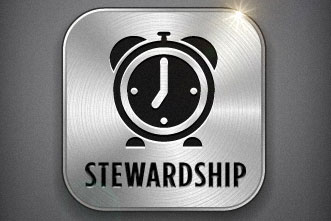The wise stewardship of our time is a very spiritual matter. The Lord has graciously given us a predetermined amount of time, and we are responsible to utilize it with wisdom.
As Oswald Sanders points out in his classic work Spiritual Leadership, each of us has the same amount of time each day as the president of the United States. How can we maximize the time that has been given? How can we rid ourselves of some of the wasted time?
While this list is not inerrant or exhaustive, here are five practices I have learned thus far on stewarding time.
1. Plan ahead.
Instead of rolling into your day with no plan, know the most important projects, conversations, decisions and actions that need to happen as you begin your day. Otherwise, you can easily wander into the day, do some less-value-adding work, and kind of just exist.
For me, I look at each upcoming day the night before the new day begins. I make a list, sometimes mental, sometimes on paper, of the most important things that must happen the next day. Doing so helps me begin my day with a plan. Not doing so would put me in a reactive posture. I could still be busy, but I would quite possibly be busy doing the wrong things.
2. Attack the day.
There is a difference in beginning the day with an offensive posture and beginning the day with a defensive posture.
With a defensive posture, you will likely invest more time on the less important, and less time on the most important. If you don’t attack the day with a commitment to throw your best energy into the most important, the inbox or voicemail can grab your best energy. You will likely spend more time than you need to on less important items, issues, etc.
With an attack mentality, the items in the inbox and the voicemail still get your attention, but they get the appropriate attention.
3. Redeem dead times.
Having a plan for the day with an attack mentality inevitably leads to a desire to redeem dead times. Dead times are often the spaces between events that can either be squandered or utilized. Drive times and wait times are most common.
Drive times: Instead of constantly clicking “scan” on the radio button, use your drive time for learning or connecting. Zig Ziglar coined the phrase “automobile university” to describe how much learning can be accomplished while driving. Likewise, the drive time is great to knock out several phone calls.












